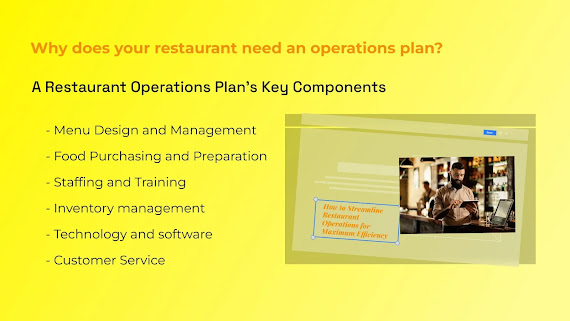Crafting a Comprehensive Food Truck Business Plan: Your Ultimate Guide
Embarking on a food truck venture opens doors to the dynamic world of street food, offering unparalleled flexibility and access to diverse customer bases across various locations. The rise of the food truck business model in recent years stems from its convenience, catering to individuals with mobile lifestyles and serving as a low-risk, low-investment option for aspiring entrepreneurs in the restaurant industry. With consumerism on the rise and a growing preference for dining out, the food truck sector has witnessed remarkable growth, reflected in the global market's value of $3.93 billion in 2020, projected to grow at a compound annual rate of 6.8% by 2028.
What Constitutes a Food Truck Business Plan?
A food truck business plan serves as a comprehensive roadmap outlining business goals, strategies, and operational processes essential for success. It provides a blueprint detailing all elements crucial to the business's viability and growth.
Planning to Launch Your Food Truck Business?
Operating a food truck successfully requires meticulous planning and strategizing, addressing operational challenges such as fuel and power management, securing parking permits, and optimizing cooking and serving in compact spaces. A robust food truck business plan is essential for overcoming these challenges efficiently and ensuring sustainable growth.
An effective food truck business plan functions as a guiding light, navigating the complexities of the market and outlining the best path forward. By delineating business goals, defining target audiences, and operational strategies, a well-crafted plan not only instills confidence but also serves as a compelling tool for securing funding.
Beyond offering delectable recipes from a mobile kitchen, running a food truck demands careful planning and execution. Our guide will provide valuable insights into crafting a comprehensive food truck business plan.
Before delving into the intricacies of drafting a food truck business plan, it's essential to understand why food trucks have become an appealing alternative to traditional restaurants.
Why Is a Food Truck Business Plan Crucial for Success?
Depicts Focus: A formal food truck business plan showcases a clear focus on brand building, signaling visionary leadership and inviting stakeholders to join an ambitious project.
Determines Financial Needs: Assessing startup costs, projected sales, and annual budgets helps determine the precise capital requirements, crucial for sustainable operations and growth.
Understands Competition: Analyzing competitors helps mitigate risks and adapt strategies to differentiate the brand and avoid market saturation.
Understands Customers: Customer analysis illuminates demographics, preferences, and purchasing behavior, enabling targeted marketing efforts and product development.
Evaluates Concept Feasibility: Thorough market research assesses the viability and potential success of the business concept, guiding strategic decision-making.
Discovers New Opportunities: Brainstorming and planning foster innovation, leading to the generation of new ideas and strategies for business growth and differentiation.
Elements of a Food Truck Business Plan
A professional, comprehensive food truck business plan encompasses vital elements essential for success:
Executive Summary: Offers a concise overview of the business concept, menu offerings, target audience, location, mission, core values, financial projections, and profitability.
Company Overview: Explores the culinary vision, mobile kitchen setup, menu offerings, key milestones, relevant licenses, and equipment acquisitions.
Management Structure: Details the expertise, roles, responsibilities, and ownership structure of the management team, ensuring efficient operations and accountability.
Financial Plan: Outlines initial investments, operational expenses, revenue projections, profitability estimates, funding requirements, and repayment terms, crucial for financial sustainability and growth.
Operations Plan: Provides insights into ingredient sourcing, food preparation, supplier/vendor management, location selection, health, and safety compliance, enabling efficient daily operations and contingency planning.
Market Analysis and Outreach: Defines target audiences, analyzes competitors, formulates marketing strategies, and outlines growth plans, driving customer acquisition, retention, and business expansion.
Crafting a successful food truck business plan requires careful consideration of these elements, providing clarity to stakeholders and investors while charting a course for sustainable growth and success.
Conclusion
A well-crafted food truck business plan is indispensable for aspiring restaurateurs and food entrepreneurs, providing a roadmap for success in the dynamic world of street food. By meticulously outlining business goals, strategies, and operational processes, entrepreneurs can navigate challenges, seize opportunities, and build a thriving food truck venture. Whether you're embarking on your first culinary adventure or expanding your existing food business, a comprehensive business plan sets the stage for success in the competitive food truck industry.




Comments
Post a Comment